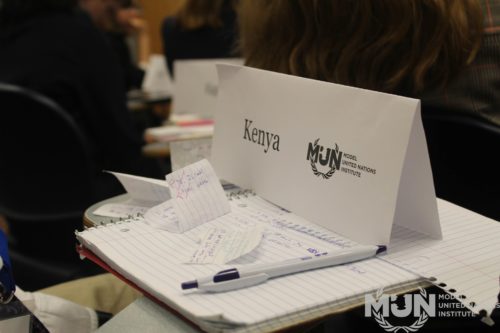Missed the first part of this series? Check out Part 1 here!

The scheduling for conferences is often much too long. I understand, especially when run by teenagers and young adults, that the organizers want to maximize the number of sessions and activities. The organizers often become overly excited and want to pack in as many activities and events in one day as they can. Often, what these organizers are failing to see is that delegates are only fourteen to eighteen years old. They are not adults. The students are used to regular school days and are not ready, physically nor mentally, to cope with a 9 AM to 9 PM schedule. Lengthy conferences comes with an array of issues:
- Low quality discussions and debates at the end of the day. I often see exhausted and weary students who are ready to go home well before the end of the conference day is scheduled to end. MUN should be about quality, not quantity. It is a shame to waste the last two hours of the day on a poor debate, when students could simply go home (or to their hotel), and get ample rest in order to be ready for the next day.
- The lengthy schedules deter students from completing their school work. The students are students first, and MUNers second. Every MUN student has a full-time job as a high school student, which comes with various responsibilities. It’s irresponsible for conferences to set up schedules that are all-consuming of a delegate’s time. On more than one occasion, I have seen high-achieving students return from densely scheduled weekend conferences during which they were unable to keep up with their homework. They return to school on Monday having fallen behind. We must keep in mind the students’ well-being first and foremost when constructing a MUN conference schedule.
THE SOLUTION
I keep in mind two aspects when organizing a conference: how does this schedule compare to a school day? And, how would the average 15 year old student cope with the proposed schedule? It’s simple: an average school day is something along the lines of 8:00 AM to 4:00 PM, with some breaks in between. I try to make sure that the conferences I direct are not much longer than the average school day. If we start at 9 AM, we are done by 6 PM. We need to make conference schedules reasonable. It will help avoid exhausted students engaging in inefficient dialogue at the end of the day; remember, quality over quantity.
Check back next week for Part 3 of this series, which will focus on issues related to Unclear Awards Criteria!


